We could come up with several reasons why Parker and company hired Japanese people to play Indians besides doing a satire. For instance, they couldn't find any Indians and didn't care enough to look. Or they thought all Indians look vaguely Asian so Japanese was close enough. If this sounds farfetched, recall that major studios hired Mizuo Peck and Boo-Boo Stewart to play Indians using the same "thinking."
Suppose you're a child who's never seen an old Western. Explain to me how this "satire" works. You see the Japanese "Indians" and you immediately think, "That's wrong"? More to the point, you think, "The filmmakers must be doing that intentionally because no one could do something that stupid unintentionally"?
What would the same children think if you showed them an old minstrel show that caricatured blacks as buffoons? "That's wrong"? "The producers must be doing that intentionally because no one could do something that stupid unintentionally"? Maybe they'd say that, but maybe not.
Examples of "satirical" stereotypes?
I trust you know that many people, especially children, think Indians no longer exist. It seems more likely to me that a typical child would say, "Look, the Japanese are playing Indians. That must be because all the Indians are dead. I thought that was true and this movie confirms it."
We can even try to quantify these assumptions. Here are my best guesses about the numbers:
Do you think that a stereotype can't be harmful because some people may be clever enough to see through it? That "everyone knows" things like minstrel shows and Indian mascots are phony so there's no reason to criticize them? Is that really your position?
I thought you knew better than that, DMarks. Here are some examples you brought to my attention:
And many more.
What's the difference?
Are you now defending the stereotypes you previously condemned? Based on what, exactly? What's the difference between, say, Dudley Do-Right's "Kumquat Indians" and Parker's Japanese "Indians"? Tell me why some stereotypical "Indians" are offensive but others aren't.
Because Parker and company intended their casting to be "satirical"? How do you know what any of these products' creators thought? If they claimed their choices were satirical, comical, or "just plain fun," would that excuse them? How do you know they didn't claim that: to their colleagues or to the public?
If you questioned the creators, they might say that they weren't stereotyping Indians. That they "knew" Indians aren't animals, savages, or big-nosed cartoon characters. That they were using stereotypes to make fun of our stereotypical notions of Indians.
This sounds good, but it's pure crapola. Again, if a so-called "satire" is indistinguishable from something that's not a satire, the satire doesn't exist. People are using the "satire" excuse to justify their stereotypical beliefs. They're slapping a label on their actions so you won't think about the message they're sending. And you're naively falling for it.
Let's consider a few examples. If white students dressed up in sheets and hoods but said, "We were just mocking the Ku Klux Klan," would you excuse their behavior? If a husband cheated on his wife but said, "I still love you, it was just meaningless sex," would you believe him? If a crook robbed your house but said, "I was just testing your home security," would you buy it? Why not, if the wrongdoers' rationalizations are paramount?
Satirizing with stereotypes
What you've missed is that this isn't an either/or situation. It's not "they're using stereotypes but not satirizing" or "they're satirizing but not using stereotypes." They may be doing both: satirizing and using stereotypes.
Proving how old and tired this issue is, I reported on Howard Stern's Native-themed Son of the Beach episode back in 2000. In this parody of Baywatch, some Malibu-area Indians hoped to open a casino near the beach. The episode was clearly a satire overall, but it was an uncomfortable mess. Half the time it mocked Native stereotypes and half the time it was used and reinforced these stereotypes.
In 1998, I reported on an Animaniacs cartoon--in the very first issue of my Indian Comics Irregular newsletter. Again, the show straddled the uneasy line between mocking and perpetuating stereotypes. The example I remember is someone carrying a bull in a headdress to represent Sitting Bull.
Was that mocking our ignorance of Sitting Bull and his name, or mocking Sitting Bull himself? If someone mentioned a black man named Washington and the Animaniacs responded with George Washington in blackface, would that be a "satirical" response too? Why not, since it's conceptually identical to portraying Sitting Bull as a reclining cow?
I thought these examples were lame, but they're comedic gold compared to Parker's feeble "satire." He gave us no reason to think the Plains stereotypes were a joke and little reason to think the Japanese actors were a joke. The same scenes could've appeared in an old children's book featuring dogs as Indians with the same pathetic excuses. "We weren't making fun of Indians, we were making fun of people who think Indians are mutts and mongrels." Ha ha...very funny.
Conclusion
So yes...creators such as Parker and Stern may intend to satirize stereotypes, or think they're satirizing stereotypes. That doesn't mean they've done it. If they present the stereotypes exactly as a stereotyper would, there's literally no difference. Looking for imaginary differences such as their intent is pointless because the effects are the same.
As I've said many times, we judge a racist act by its results, not by the perpetrator's thought processes. Chief Wahoo is a racist caricature even if the Cleveland baseball team "intends" to honor Indians. And Cannibal! The Musical's stereotypes are wrong even if the filmmakers "intended" them to satirize old Westerns.
You can apply this analysis to all sorts of issues that arise in this blog. Cowboys & Findians in The Dudesons, "Tardicaca Indians" in South Park, the rapacious cavalryman in Family Guy, the Indian jokes in Parks and Recreation, the redskin-wearing Mardi Gras Indians, the foreign videos featuring dancing Indians, the hipster headdresses, etc. Basically, any time someone claims their stereotypes are a satire, a parody, ironic, humorous, or just plain fun. All these claims are false attempts to "have your cake and eat it too": to display your racist, stereotypical views under the guise of "satirizing" them.
For more on the subject, see "It's Just a [Fill in the Blank]" and Equal Opportunity Offenders.
Below: Stupid stereotypes, or satires? How do you know which is which? Show me the evidence that the creators intended or didn't intend to "satirize" our perceptions of Indians. Hint: If you can't prove the creators' intent beyond a reasonable doubt, you lose the argument.
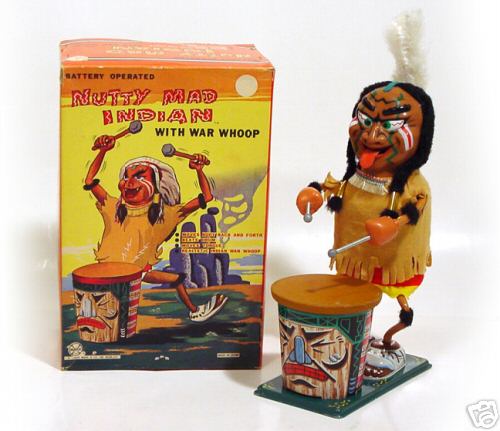
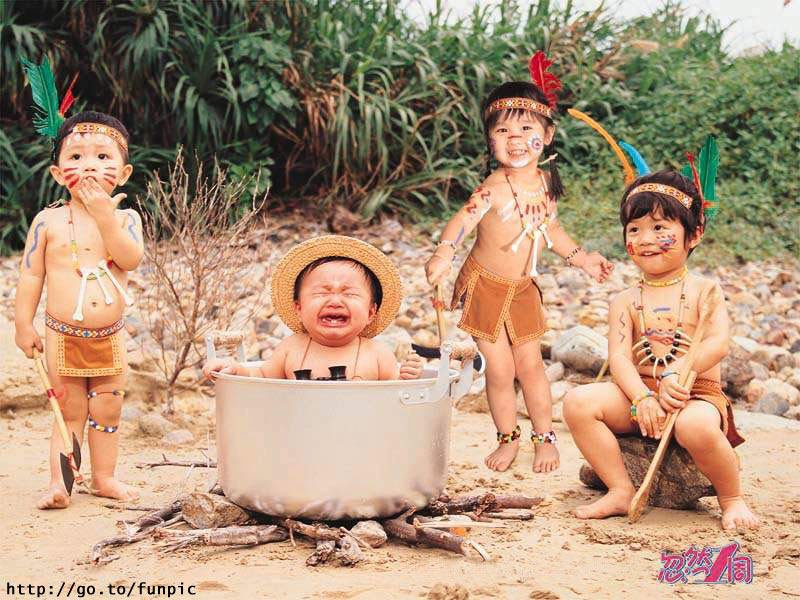
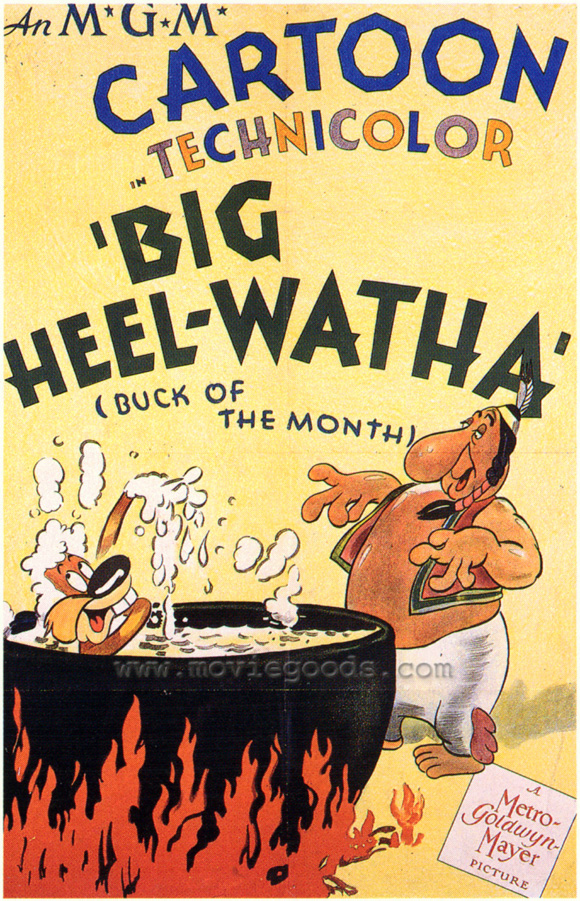
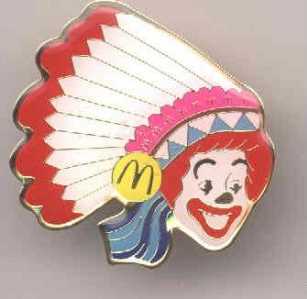
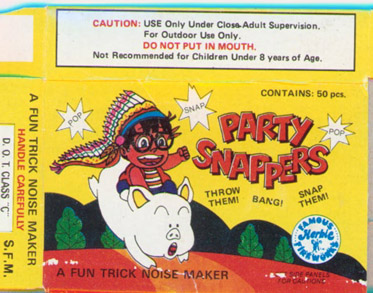
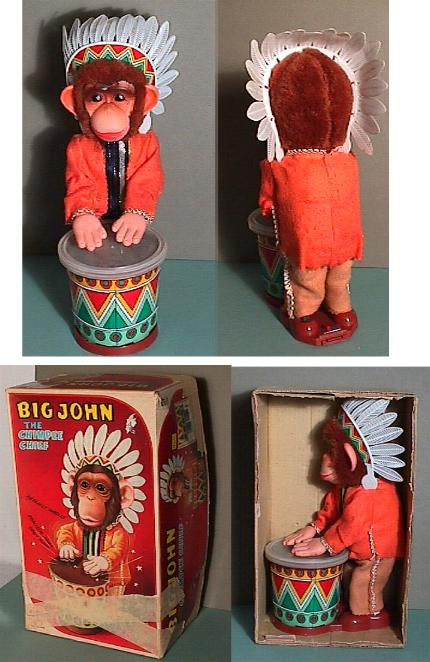

12 comments:
Wow. You got a bee in your bonnet on this one! I was merely referring to the Japanese element as not being stereotypical. Making something Japanese is not specifically denigrating (as say, compared to making Indians into gophers!). Nor is it a stereotype: you have tried, true, and tired stereotypes of Plains Indians, princesses, warriors, etc... but none have anything to do with the Japanese.
"What's the difference between, say, Dudley Do-Right's "Kumquat Indians" and Parker's Japanese "Indians"? Tell me why some stereotypical "Indians" are offensive but others aren't."
To answer this, look at the first sentence of your post. You refer to the Parker Indians as being "stereotypical Plains Indians". This is probably what makes them as bad as the Kumquats and others. Not the Japanese name thing specifically.
I'm addressing at least two problems here: 1) the standard Plains stereotypes and 2) the standard "non-Native as Native" casting issues. Both are wrong, and "satirizing" isn't a legitimate excuse for either one.
I went on about this at length because we constantly hear people excuse racism and stereotyping as "satirical," "ironic," or "humorous." I trust I've demolished these excuses once and for all.
Also, you said " Son of the Beach episode back in 2000. .... but it was an uncomfortable mess. Half the time it mocked Native stereotypes and half the time it was used and reinforced these stereotypes."
That is probably the case for the Trey Parker "Japanese Indian" thing also.
I think it's possible to use stereotypes in a way that mocks them without reinforcing them. But it requires a subtle grasp of the issues. Only a tiny minority of people can do it and do it right. The vast majority will do it wrong or make a muddled mess of it.
"As I've said many times, we judge a racist act by its results, not by the perpetrator's thought processes."
Rob- I think I'm going with you on this one. (and not because this is your blog)
You could pick apart and argue over all these individual cases but as I always remind myself- individual examples do not necessarily produce stereotypical thoughts.
It is the cumulative effect of 500 years of these cliches, misconceptions, and stereotypes combined with such little education and awareness on the other side that creates our present conundrum.
In our minds, images last much longer than any humor or positive meaning. Therefore, in the end, the stereotypes get the last laugh while any humor, satire, or good will fade away.
...and don't forget, we are all adults debating this.
If there is one thing I've learned over the past few months it is this- I'm an adult and I understand the nuances of stereotypes, cliches, and even satire.
But what about the kids?
That's the part that scares me. Between High School Indian mascots, Thanksgiving pageants, cartoon caricatures, and the "Findians" on MTV, these are all directed at the K-12 set! Which is also the group of people who lack the maturity and psychological development to separate fact from fiction, historical from modern, savage from average!
dmarks- you are an adult and may see the Findians and other Indian uses as satire. But do young people?
(and if not satire, then what?)
I believe Trey Parker original intent was to mock HOLLYWOOD. I'm not going give to give him a pass on this one. But I believe he also mocked the Japs in this "Cannibal" stint by what Rob referred to them as in the racist epithet--mongaloids. Rob goes on to laugh, pretending that isn't funny. In my opinion, I believed the Japs were fooled in this one. Since they agreed to partake that they saw themselves as Mongaloids. By "reinforcing" that racist epithet. But the original intent of "Cannibal" was to attack Hollywood for their lack of inclusion of true and authentic Natives in mainstream Hollywood films.
~GENO~
Rob, Stephen: In light of the Findian thing, I find the Japanese element of the "Cannibal!" project to be more overwhelmed by blatantly stereotypical elements than I did before. Not that I thought it was a terribly witty idea to begin with.
OK. But what is your take on Mel Brooks' Yiddish-speaking tribe in Blazing Saddles?
I teach ESL. I once asked my students, "What do you know about Native Americans?" A Japanese engineering Master's degree student said, "They all died."
A Taiwanese woman pursuing her Master's degree believed the feather grew out of their heads, as they were part animal.
It was terrifying.
Kaipo. The ESL part sounds very interesting. Would it be possible to contact you by email?
Nihonjin actually means "Japan-man" or someone from Japan. They speak Japanese. Why, I don't know. South Park's knowledge of Khalkha is less than perfect either.
Obscure language means people are going to use what they know instead of the actual language.
As for the stereotypes, I really don't want to be Isaac Hayes, laughing until they make fun of me.
Tom: You could consider Blazing Saddles to be a Take That at Mormons.
Post a Comment